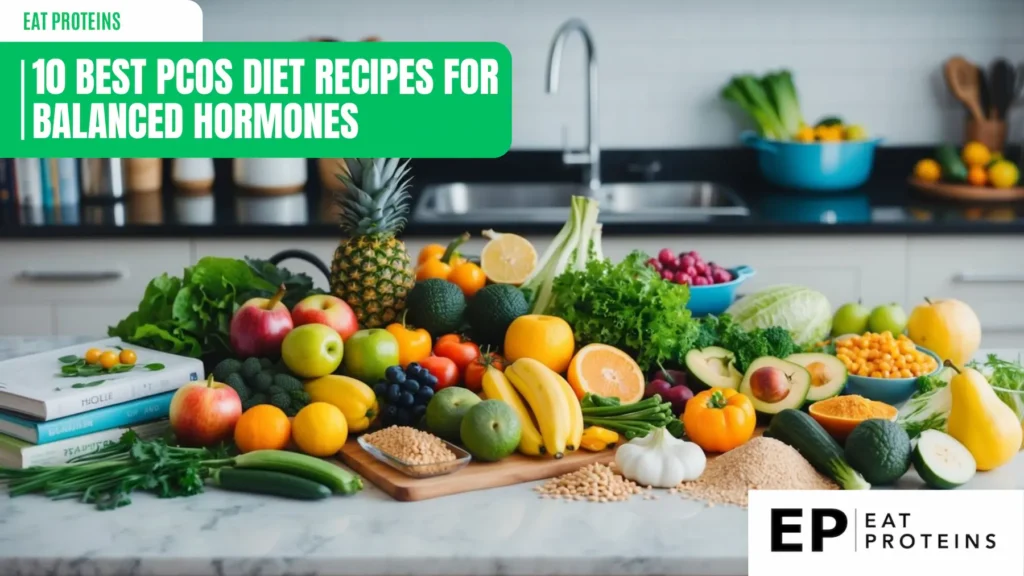
PCOS can make meal planning tricky. I know how hard it can be to find tasty recipes that also keep symptoms in check. That’s why I’ve put together this list of PCOS-friendly dishes.
These 10 recipes are packed with nutrients to help manage PCOS and taste great too. I’ve chosen meals that are easy to make and use simple ingredients. From breakfast to dinner, these dishes will give you plenty of options to keep your diet on track.
1. Spinach and Feta Stuffed Chicken
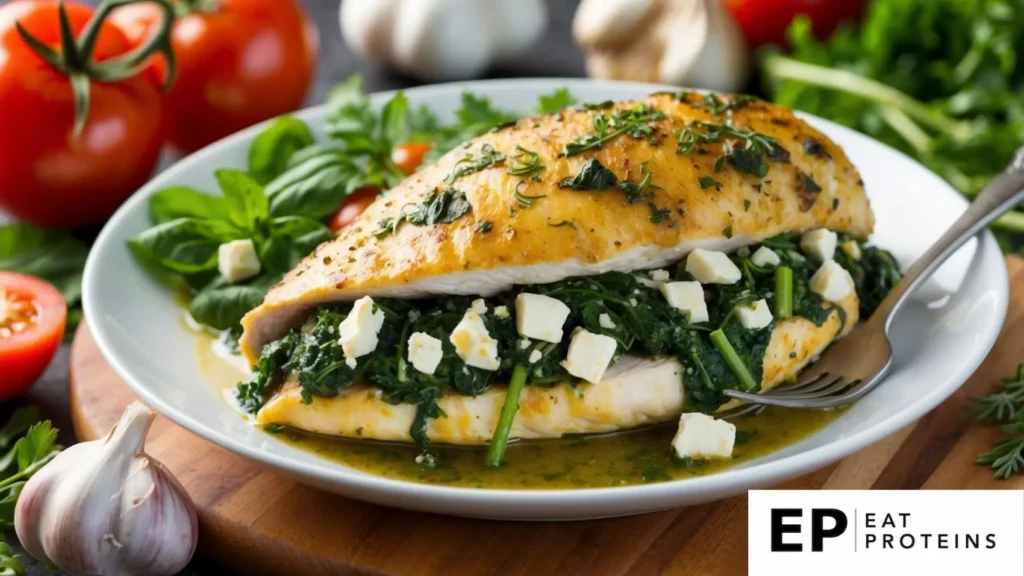
Spinach and Feta Stuffed Chicken is a tasty and nutritious dish that fits well into a PCOS-friendly diet. I find it easy to make and packed with protein and vitamins.
To prepare, I start by mixing chopped spinach with crumbled feta cheese. Then I cut a pocket in each chicken breast and stuff it with the mixture.
I season the stuffed chicken with herbs and spices, then bake it in the oven at 375°F (190°C) for about 25-30 minutes. It’s important to check that the internal temperature reaches 165°F (74°C) to ensure it’s fully cooked.
This recipe is versatile. I can add other veggies like tomatoes or bell peppers to the stuffing for extra nutrients. The high protein content from the chicken helps balance blood sugar, which is good for PCOS management.
I like to serve this dish with a side of roasted vegetables or a small portion of whole grains for a complete meal. It’s a filling and satisfying option that supports my health goals.
2. Salmon and Asparagus Foil Packs
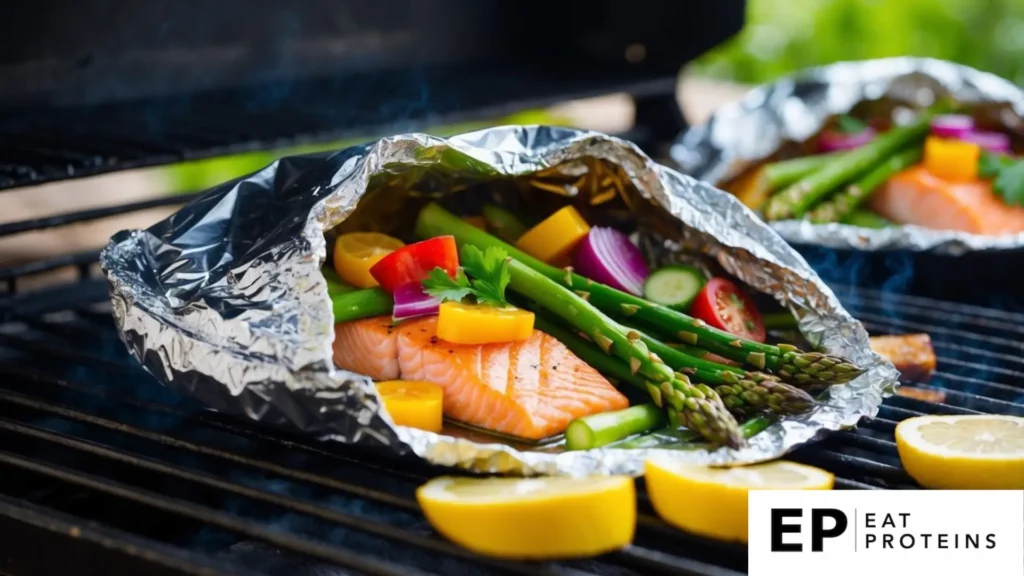
Salmon and asparagus foil packs are a simple, tasty meal that’s great for people with PCOS. I find this dish easy to make and packed with nutrients.
These packs combine omega-3 rich salmon with fiber-filled asparagus. Both foods can help manage PCOS symptoms and support overall health.
To make these packs, I start by preheating the oven to 400°F (200°C). I place a 6-ounce salmon fillet and 6-8 asparagus spears on a piece of foil.
Next, I drizzle the ingredients with olive oil and season with salt, pepper, and lemon juice. I wrap the foil tightly to seal in the flavors.
I bake the packs for about 15-20 minutes. The exact time depends on the thickness of the salmon. When done, the fish should flake easily with a fork.
This meal is high in protein and healthy fats, which can help balance blood sugar levels. It’s a smart choice for those following a PCOS-friendly diet.
3. Zucchini Noodles with Pesto
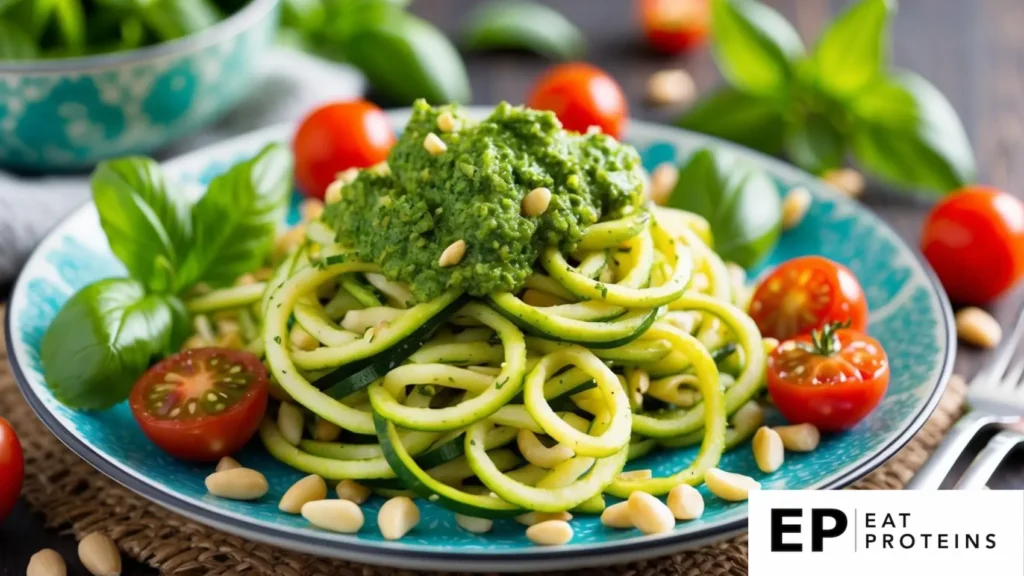
Zucchini noodles, also known as zoodles, are a tasty low-carb alternative to pasta. I find them perfect for a PCOS-friendly diet.
This dish is quick and easy to make. I can have it ready in about 15 minutes. Here’s how I do it:
- I spiralize 2 medium zucchinis to make the noodles.
- In a pan, I heat 1 tablespoon of olive oil over medium heat.
- I cook the zucchini noodles for 3-5 minutes, stirring often.
- While they cook, I prepare 1/4 cup of homemade or store-bought pesto.
- I toss the cooked zoodles with the pesto and serve.
This meal is packed with nutrients. Zucchini is low in calories and high in fiber. The pesto adds healthy fats and flavor.
I love how versatile this dish is. I can add grilled chicken or shrimp for extra protein. Sometimes I throw in some cherry tomatoes or pine nuts for added texture.
4. Quinoa and Black Bean Salad
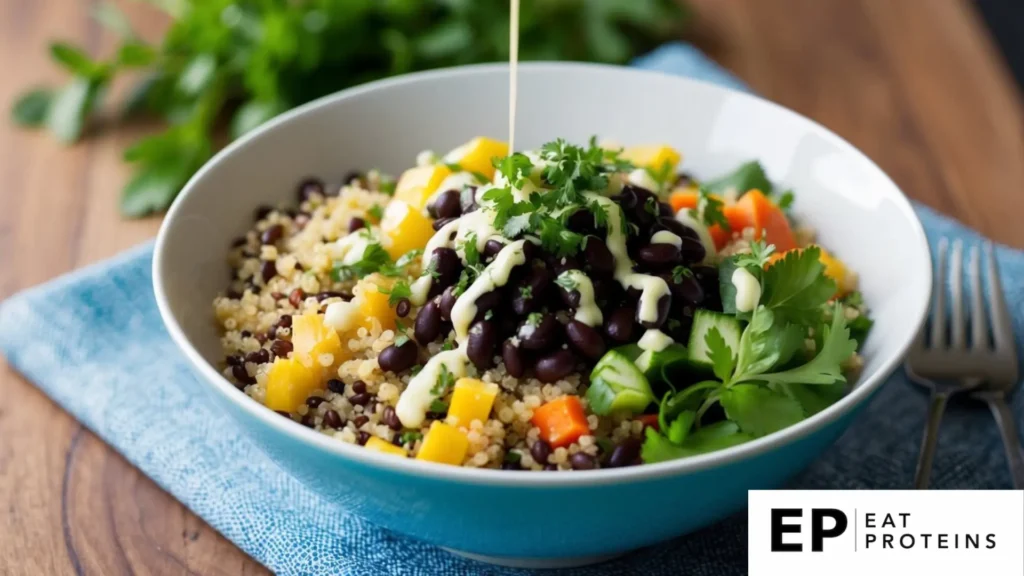
Quinoa and black bean salad is a nutritious dish that’s great for people with PCOS. It’s packed with protein and fiber, which can help manage blood sugar levels.
This salad is easy to make and takes about 30 minutes from start to finish. I start by cooking 1 cup of quinoa in 2 cups of water for about 15 minutes until it’s fluffy.
While the quinoa cools, I mix together 1 can of drained black beans, 1 diced red bell pepper, and 1/4 cup chopped cilantro in a large bowl.
For the dressing, I whisk 2 tablespoons of olive oil with the juice of 1 lime and a pinch of salt. I add the cooled quinoa to the bean mixture and pour the dressing over it.
I give everything a good stir and let it chill in the fridge for at least 15 minutes before serving. This recipe is perfect for meal prep and can be stored in the fridge for up to 3 days.
5. Greek Yogurt with Berries
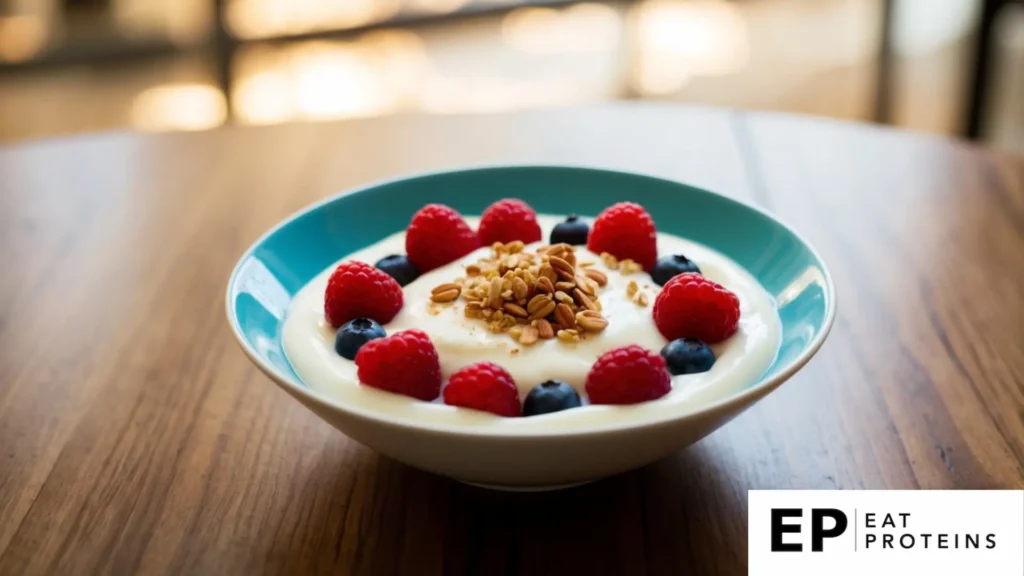
Greek yogurt with berries is a simple and tasty recipe for those with PCOS. It’s rich in protein and antioxidants, which can help manage symptoms.
I find this dish very easy to make. It takes less than 5 minutes to prepare and requires no cooking.
To make it, I start with 1 cup of plain Greek yogurt. I choose full-fat or 2% fat versions, as they’re more filling.
Next, I add 1/2 cup of mixed berries. I like using a mix of strawberries, blueberries, and raspberries. These fruits are low in sugar and high in fiber, which is good for PCOS.
For extra sweetness, I sometimes drizzle 1 teaspoon of honey over the top. Honey adds flavor without causing a big spike in blood sugar.
This recipe is versatile. I can change up the berries or add nuts for crunch. Some women with PCOS like to add a frozen banana for creamier texture.
Greek yogurt with berries makes a great breakfast or snack. It’s filling and can help keep blood sugar stable throughout the day.
6. Avocado and Tomato Salad
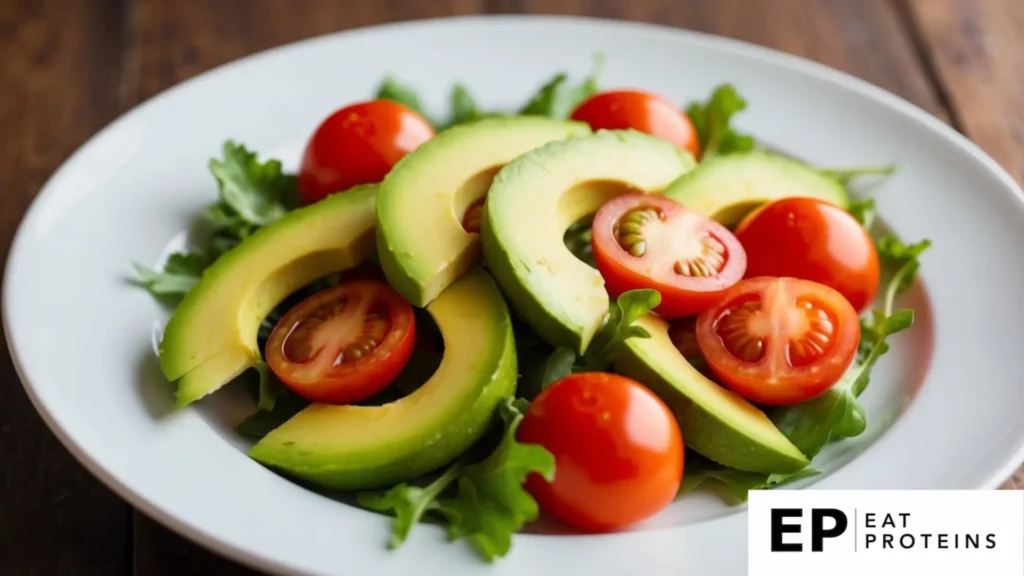
I find this salad to be a great option for those following a PCOS diet. It’s simple to make and packed with nutrients.
Avocados are rich in healthy fats and fiber, which can help balance hormones and improve insulin sensitivity. Tomatoes add vitamin C and antioxidants to the mix.
To make this salad, I start with 1 ripe avocado and 2 medium tomatoes. I dice them into bite-sized pieces and place them in a bowl.
Next, I add 1/4 cup of diced red onion for a flavor boost. For dressing, I use 2 tablespoons of olive oil and 1 tablespoon of lemon juice.
I season the salad with salt and pepper to taste. Sometimes I add a sprinkle of fresh herbs like basil or cilantro for extra flavor.
This recipe takes about 10 minutes to prepare. It serves 2 people as a side dish or can be a light meal on its own.
I like to chill the salad for 15-30 minutes before serving to let the flavors meld. It’s a refreshing and nutritious option for those managing PCOS.
7. Garlic Roasted Brussel Sprouts
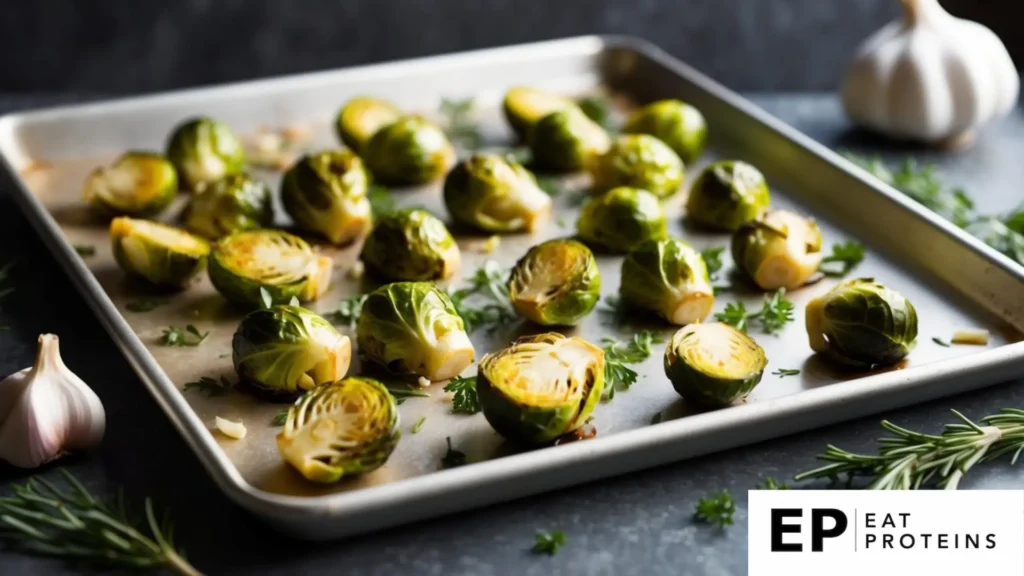
Garlic roasted Brussels sprouts are a tasty and nutritious dish that fits well into a PCOS-friendly diet. These small, cabbage-like vegetables are packed with fiber and vitamins.
I find this recipe quick and easy to make. It takes about 25 minutes from start to finish.
To prepare, I first preheat the oven to 400°F (200°C). Then I trim and halve 1 pound of Brussels sprouts.
In a bowl, I mix the sprouts with 2 tablespoons of olive oil, 3 minced garlic cloves, salt, and pepper. I spread them on a baking sheet in a single layer.
I roast the sprouts for 20 minutes, shaking the pan halfway through. They’re done when they’re golden brown and crispy on the outside.
This recipe serves 4 as a side dish. It’s a great addition to any meal and can help balance blood sugar levels, which is important for managing PCOS symptoms.
8. Baked Cod with Lemon and Herbs
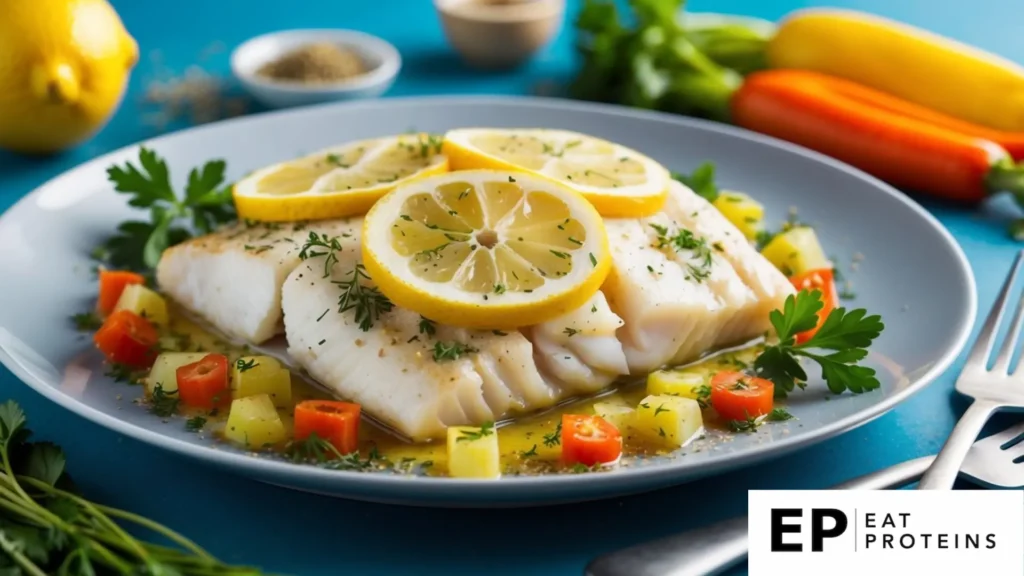
Baked cod with lemon and herbs is a tasty, healthy option for those following a PCOS diet. I find this dish easy to make and packed with nutrients.
Cod is a lean fish that’s firm and flaky when cooked. It’s a great source of protein and omega-3 fatty acids.
To make this dish, I preheat the oven to 400°F (200°C). I place cod fillets on a baking sheet and season with salt and pepper.
Next, I sprinkle fresh herbs like parsley, dill, or thyme over the fish. I squeeze fresh lemon juice on top and add lemon slices for extra flavor.
I bake the cod for about 12-15 minutes, or until it flakes easily with a fork. The cooking time may vary depending on the thickness of the fillets.
This recipe is versatile. I can pair it with roasted vegetables or a side salad for a complete PCOS-friendly meal.
9. Cauliflower Fried Rice
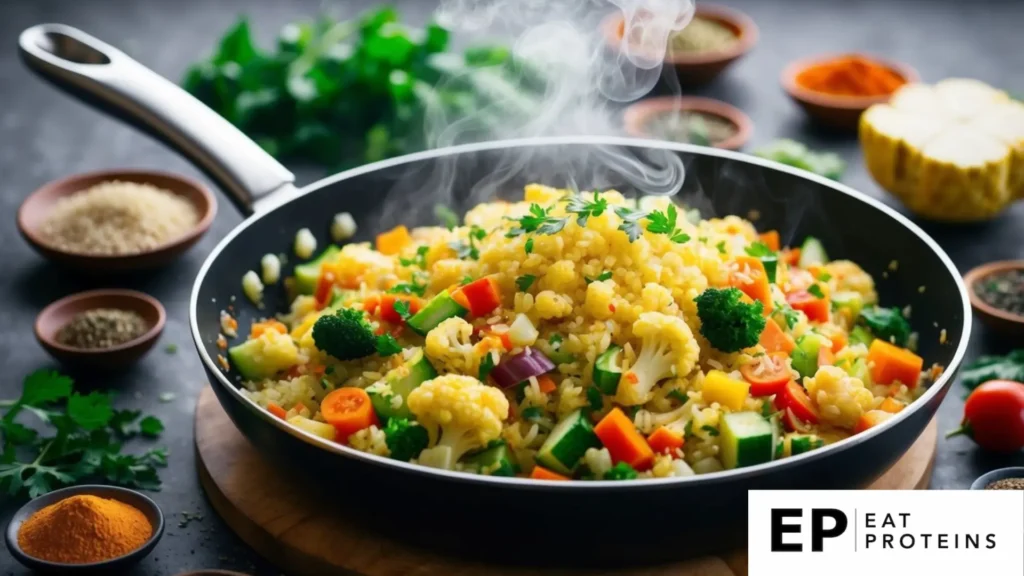
Cauliflower fried rice is a tasty, low-carb alternative to traditional fried rice. It’s perfect for those following a PCOS-friendly diet.
I find this dish incredibly easy to make. It takes about 20 minutes from start to finish, making it ideal for busy weeknights.
To start, I pulse cauliflower florets in a food processor until they resemble rice grains. This usually takes about 30 seconds.
Next, I heat a tablespoon of oil in a large skillet over medium heat. I add diced onions and minced garlic, cooking for 2-3 minutes until softened.
I then add the cauliflower “rice” to the skillet and stir-fry for 5-7 minutes. During this time, I season it with soy sauce, salt, and pepper to taste.
For extra protein and nutrients, I often toss in some diced carrots, peas, and scrambled eggs. These cook quickly, usually in about 2-3 minutes.
This cauliflower fried rice recipe is versatile. I can easily adjust it to include my favorite vegetables or protein sources, making it a great option for PCOS meal prep.
10. Cucumber and Chickpea Salad
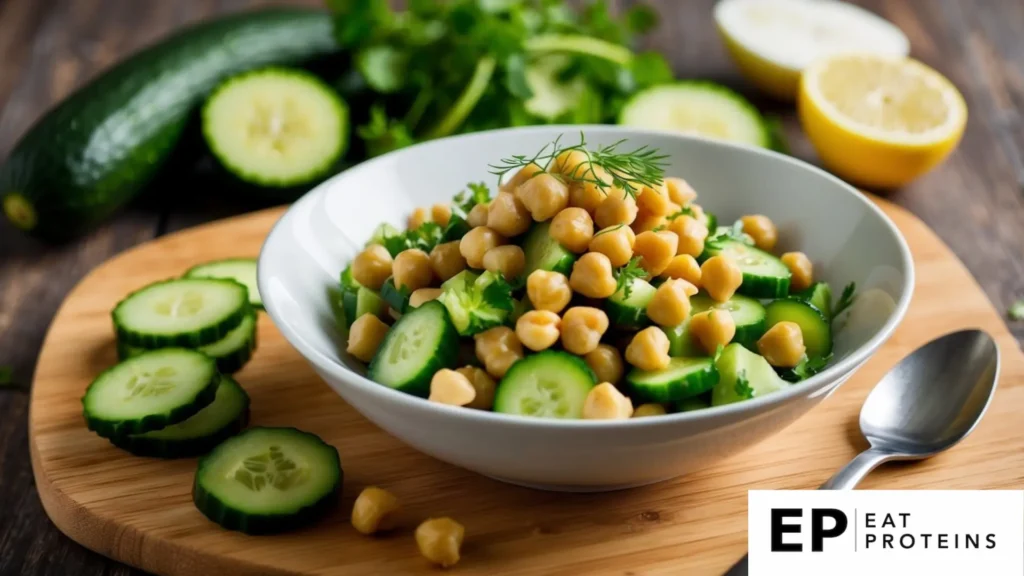
I love this refreshing salad for managing PCOS symptoms. It’s packed with nutrient-rich ingredients that support hormonal balance.
This salad is incredibly easy to make. I can whip it up in just 10 minutes, perfect for busy days when I need a quick, healthy meal.
To make it, I start by draining and rinsing a 15 oz can of chickpeas. Then I chop 1 large cucumber into bite-sized pieces.
In a large bowl, I combine the chickpeas and cucumber with 1/4 cup diced red onion and 1/4 cup chopped fresh parsley.
For the dressing, I whisk together 2 tablespoons olive oil, 1 tablespoon lemon juice, 1 minced garlic clove, and a pinch of salt and pepper.
I pour the dressing over the salad and toss gently to combine. The crisp cucumber and creamy chickpeas create a delightful texture contrast.
This salad is not only tasty but also helps with PCOS management. The chickpeas provide fiber and protein, while the cucumber adds hydration and vitamins.
What Is the Role of Nutrition in PCOS?
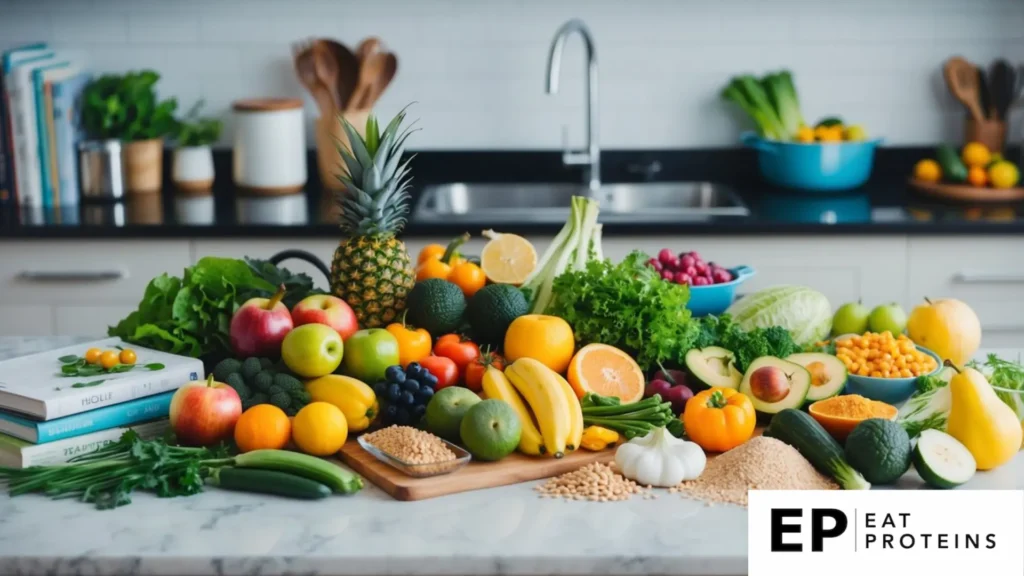
PCOS affects how women’s bodies use food. Eating the right foods can help manage symptoms and improve health. I’ll explain how diet impacts PCOS and what nutrients are important.
How Can Diet Help Manage PCOS?
Diet plays a big role in PCOS. Women with PCOS often have insulin resistance. This means their bodies don’t use insulin well. Insulin helps control blood sugar.
Eating the right foods can help fix this problem. I recommend a diet low in sugar and refined carbs. This helps keep blood sugar steady. Eating lots of fiber is also good. Fiber slows down digestion and helps control insulin.
Protein is important too. It helps you feel full and balances blood sugar. I suggest having protein with every meal. Good choices are eggs, fish, and beans.
What Are the Nutritional Requirements for Women With PCOS?
Women with PCOS need certain nutrients. Balancing meals is key. I recommend eating a mix of healthy fats, protein, and complex carbs at each meal.
Some important nutrients for PCOS are:
- Magnesium: Helps with insulin function
- Vitamin D: Many women with PCOS are low in this
- Omega-3 fatty acids: Help reduce inflammation
I suggest eating lots of vegetables. They’re full of vitamins and fiber. Berries are good too. They have antioxidants that fight inflammation.
It’s also important to watch portion sizes. Eating smaller meals more often can help control blood sugar and insulin.
What Are the Essential Nutrients for PCOS?

I’ve found that certain nutrients play a key role in managing PCOS symptoms. These include fiber, omega-3 fatty acids, and specific vitamins and minerals. Let’s explore how each of these can help support women with PCOS.
Why Is Fiber Important for PCOS?
Fiber is crucial for women with PCOS. I recommend aiming for 25-30 grams of fiber daily. Fiber helps:
- Slow digestion and stabilize blood sugar
- Reduce insulin resistance
- Promote feelings of fullness
High-fiber meals may help suppress testosterone levels in PCOS patients. Good fiber sources include:
- Vegetables
- Fruits
- Whole grains
- Legumes
Gradually increase fiber intake to avoid digestive discomfort. Drink plenty of water when eating high-fiber foods.
How Do Omega-3 Fatty Acids Affect PCOS?
Omega-3s are anti-inflammatory fats that can benefit PCOS. I suggest including omega-3 rich foods like:
- Fatty fish (salmon, sardines, mackerel)
- Walnuts
- Chia seeds
- Flaxseeds
Omega-3s may help:
- Reduce inflammation
- Improve insulin sensitivity
- Support hormone balance
Aim for 2-3 servings of fatty fish per week. Plant-based omega-3s are also beneficial but less potent than fish sources.
What Are the Key Vitamins and Minerals for PCOS?
Several vitamins and minerals are important for PCOS management:
- Vitamin D: Supports hormone balance and insulin sensitivity
- B vitamins: Help regulate blood sugar and energy levels
- Magnesium: Aids insulin function and reduces inflammation
- Zinc: Supports hormone production and regulates blood sugar
Improving insulin sensitivity is key in PCOS management. Focus on whole foods rich in these nutrients. A balanced diet with plenty of fruits, vegetables, lean proteins, and healthy fats can help ensure adequate intake.
How Can You Create a Balanced PCOS Diet?

A balanced diet is key for managing PCOS symptoms. I’ll share some helpful strategies for meal planning and grocery shopping to support your PCOS diet.
What Are Effective Meal Planning Strategies for PCOS?
I recommend planning meals that include a mix of protein, healthy fats, and complex carbs. Aim for 3 main meals and 2-3 small snacks daily to keep blood sugar stable.
Make a weekly meal plan and prep ingredients in advance. This saves time and helps stick to the diet. I suggest cooking extra portions for easy leftovers.
Try new PCOS-friendly recipes to keep meals interesting. Focus on anti-inflammatory foods like leafy greens, berries, and fatty fish.
What Are Helpful Grocery Shopping Tips for a PCOS Diet?
I always start by making a detailed shopping list based on my meal plan. This helps avoid impulse buys and ensures I have everything needed.
Shop the perimeter of the store first. That’s where you’ll find fresh produce, lean proteins, and dairy. These whole foods form the base of a PCOS diet.
Read nutrition labels carefully. Look for items low in added sugars and high in fiber. I choose whole grains over refined carbs when possible.
Buy in-season produce to save money. Frozen fruits and veggies are also great options. They’re just as nutritious and last longer in the freezer.
